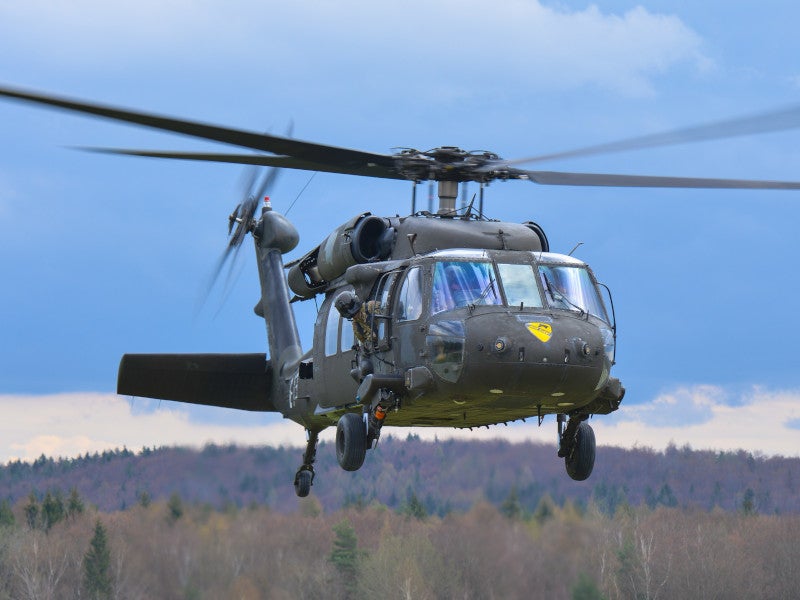UH 60 Black Hawk Helicopter Variants and Their Usages
UH 60 Black Hawk Helicopter Variants and Their Usages
Blog Article
The Effect of Lasting Practices on the Future of Aircraft Procedures and Emissions Reduction
As the air travel sector deals with increasing analysis over its ecological impact, the adoption of sustainable methods arises as a crucial pathway toward future aircraft procedures and exhausts reduction. Innovations in sustainable aeronautics gas and improvements in crossbreed propulsion modern technologies stand at the forefront of this improvement, encouraging significant reductions in greenhouse gas emissions. The effective assimilation of these initiatives hinges on a range of aspects, consisting of governing structures and industry partnership. The concern stays: just how will these progressing techniques improve the dynamics of air traveling and add to an extra sustainable future?

Summary of Lasting Practices
Lasting methods in aircraft procedures include a variety of approaches intended at decreasing environmental effect while preserving functional efficiency. These techniques are important in the aviation sector's dedication to lessening its carbon impact and adhering to global environmental criteria. Secret efforts include maximizing trip paths to reduce fuel usage, boosting upkeep protocols to ensure aircraft run at peak efficiency, and applying advanced modern technologies such as winglets and lightweight materials that boost aerodynamics.

Involving and educating team on sustainability practices additionally play a vital role, fostering a culture of environmental obligation within companies. On the whole, the integration of these lasting methods not just assists reduce emissions but likewise boosts the long-term feasibility of the aeronautics field, ensuring it meets the demands of both clients and governing bodies while adding to global sustainability objectives.
Innovative Fuel Alternatives
Countless innovative fuel options are becoming essential options to minimize the air travel market's reliance on conventional nonrenewable fuel sources. Among these options, Sustainable Air travel Fuels (SAFs) have actually acquired considerable interest as a result of their potential to reduce lifecycle greenhouse gas discharges by as much as 80% compared to traditional jet gas. SAFs are originated from different feedstocks, including waste oils, agricultural deposits, and also algae, making them a flexible choice for the sector.
An additional encouraging choice is hydrogen fuel, which, when utilized in gas cells, produces just water vapor as a by-product. Furthermore, electric propulsion systems are being discovered, leveraging battery technology to power airplane.
Last but not least, biofuels stemmed from biomass are being examined, using a sustainable choice that can be mixed with typical fuels. Collectively, these ingenious fuel alternatives stand for a vital step towards achieving a lasting aviation ecosystem, straightening with global discharges decrease targets and improving the sector's ecological stewardship.
Technological Advancements in Aviation

How can technological innovations reshape the future of aviation? Developments such as electrical and hybrid propulsion systems are at the center, encouraging significant next page decreases in fuel intake and greenhouse gas emissions.
Moreover, the execution of innovative materials, such as light-weight compounds, adds to boosted the rules of aerodynamics and fuel performance. Using fabricated knowledge and maker learning in trip operations optimizes course planning and reduces gas burn by making it possible for real-time adjustments based on weather condition and traffic problems. In addition, the advancement of independent and remotely piloted airplane systems stands to reinvent freight and traveler transportation, possibly raising performance while lessening human error.
Moreover, lasting aeronautics innovations, consisting of innovative air website traffic administration systems, can streamline procedures and lower congestion, leading to reduced exhausts throughout trip. These innovations collectively represent a paradigm change in aviation, guaranteeing a future where sustainability and functional performance are intertwined, thus sustaining the industry's dedication to decreasing its environmental effect.

Regulative Framework and Conformity
In light of the expanding emphasis on environmental stewardship within the aeronautics market, the regulative structure governing airplane procedures is developing to promote lasting techniques. Regulatory bodies, such as the International Civil Aeronautics Organization (ICAO) and numerous national aeronautics authorities, are introducing stringent standards focused on minimizing discharges and improving functional effectiveness.
These regulations usually include the adoption of Sustainable Air travel Fuel (SAF), which has been recognized as a vital component in attaining lower carbon impacts. Compliance with these policies requires airline companies to apply innovative modern technologies and operational methods, such as enhanced trip courses and find this improved air website traffic management, to reduce gas usage.
Additionally, the enforcement of emissions trading plans and carbon countering campaigns is becoming increasingly prevalent, compelling airlines to keep track of and report their discharges properly. Non-compliance can lead to considerable penalties, therefore pushing operators to focus on sustainability in their service models.
Eventually, the advancing regulatory landscape not only drives advancement and financial investment in eco-friendly technologies however likewise fosters a culture of accountability within the air travel market. As these structures remain to develop, the concentrate on lasting techniques will be integral to attaining the market's long-term ecological objectives.
Future Fads in Aircraft Procedures
As the air travel industry adapts to a significantly stringent regulative environment, future patterns in airplane operations are set to concentrate on innovative remedies that additionally improve sustainability and performance - uh 60. Secret growths will likely include the adoption of innovative air web traffic monitoring systems, which use real-time information and fabricated intelligence to enhance flight paths, reducing gas usage and discharges
Another substantial trend is the raised assimilation of lasting aviation gas (SAFs) These alternatives to traditional jet gas, obtained from sustainable sources, can significantly decrease lifecycle greenhouse gas discharges. The sector's dedication to SAFs will likely accelerate as airlines work together with gas producers to ensure accessibility and cost-effectiveness.
Additionally, the press in the direction of electrification and hybrid propulsion systems is getting momentum. Arising aircraft layouts will certainly include these technologies, using quieter and a lot more efficient operations, particularly for short-haul trips.
Verdict
The fostering of lasting aeronautics fuels, combined with improvements in electrical and hybrid propulsion systems, is crucial for lessening lifecycle greenhouse gas emissions. Maximizing trip courses and accepting cutting-edge technologies add to a quieter and a lot more ecologically friendly aviation industry.
Advancements in sustainable aeronautics gas and improvements in hybrid propulsion innovations stand at the forefront of this transformation, appealing substantial reductions in greenhouse gas discharges.Various ingenious fuel alternatives resource are emerging as pivotal services to reduce the aviation sector's reliance on standard fossil gas - uh 60. Among these alternatives, Lasting Aviation Fuels (SAFs) have actually obtained considerable focus due to their potential to decrease lifecycle greenhouse gas exhausts by up to 80% compared to traditional jet gas.Another considerable fad is the enhanced integration of sustainable air travel gas (SAFs) The adoption of sustainable aeronautics gas, paired with developments in hybrid and electric propulsion systems, is necessary for reducing lifecycle greenhouse gas discharges
Report this page